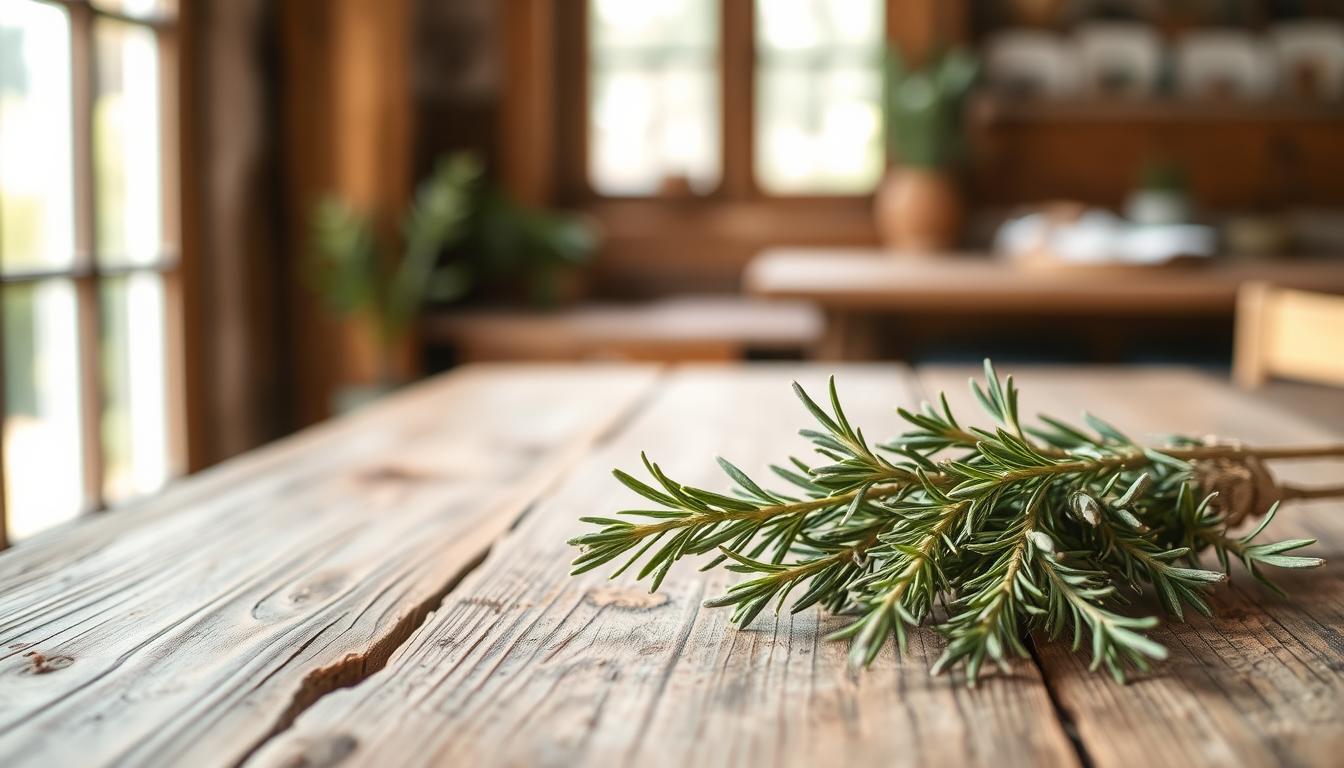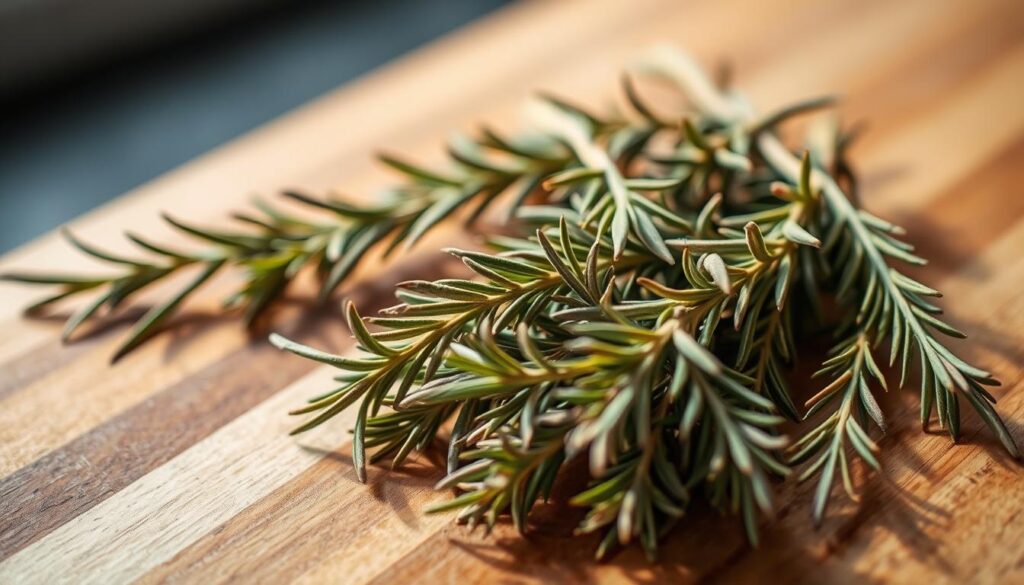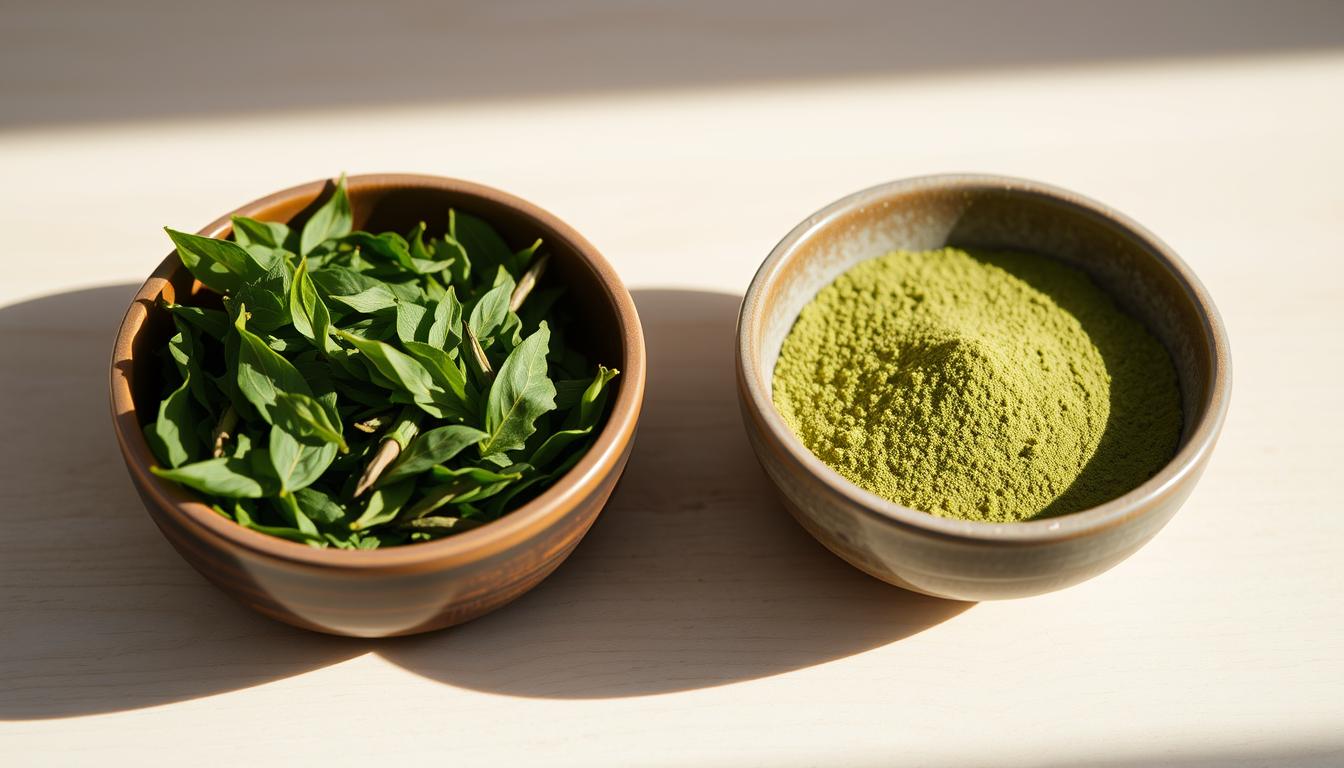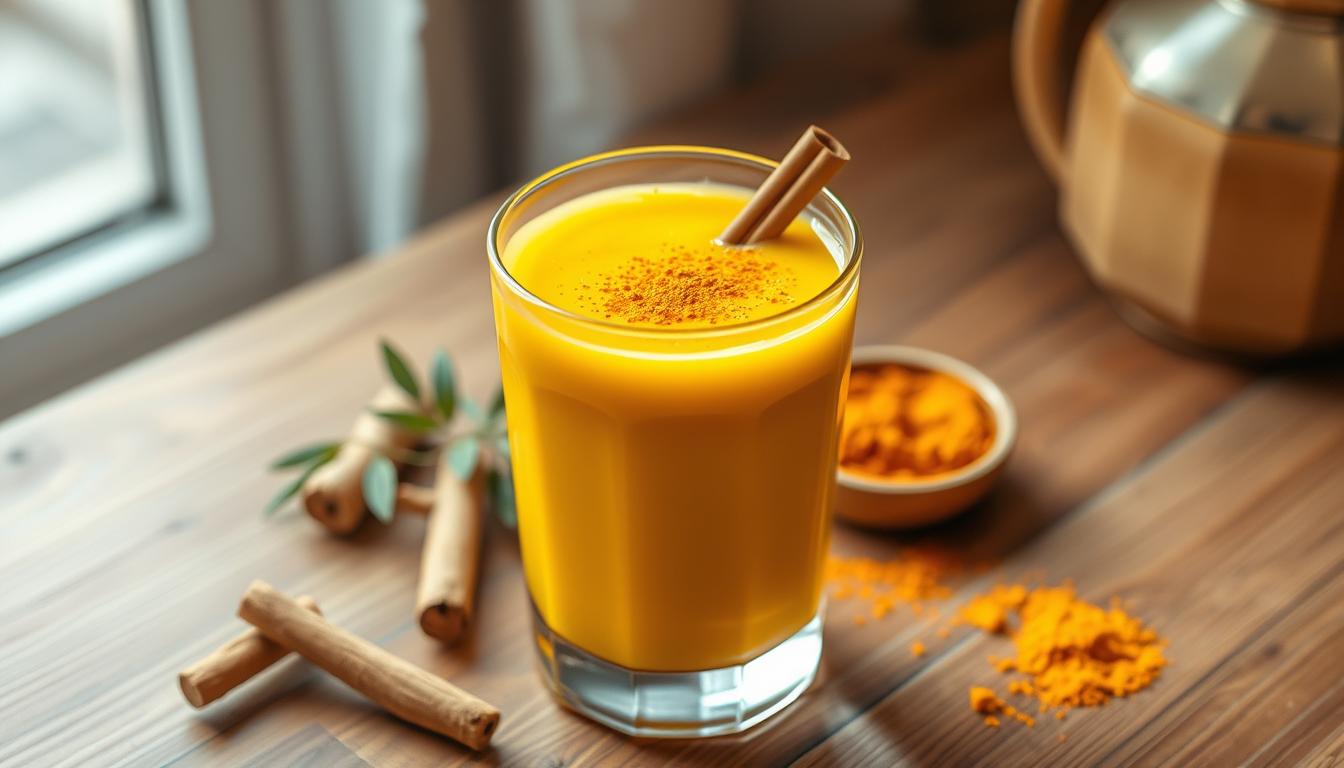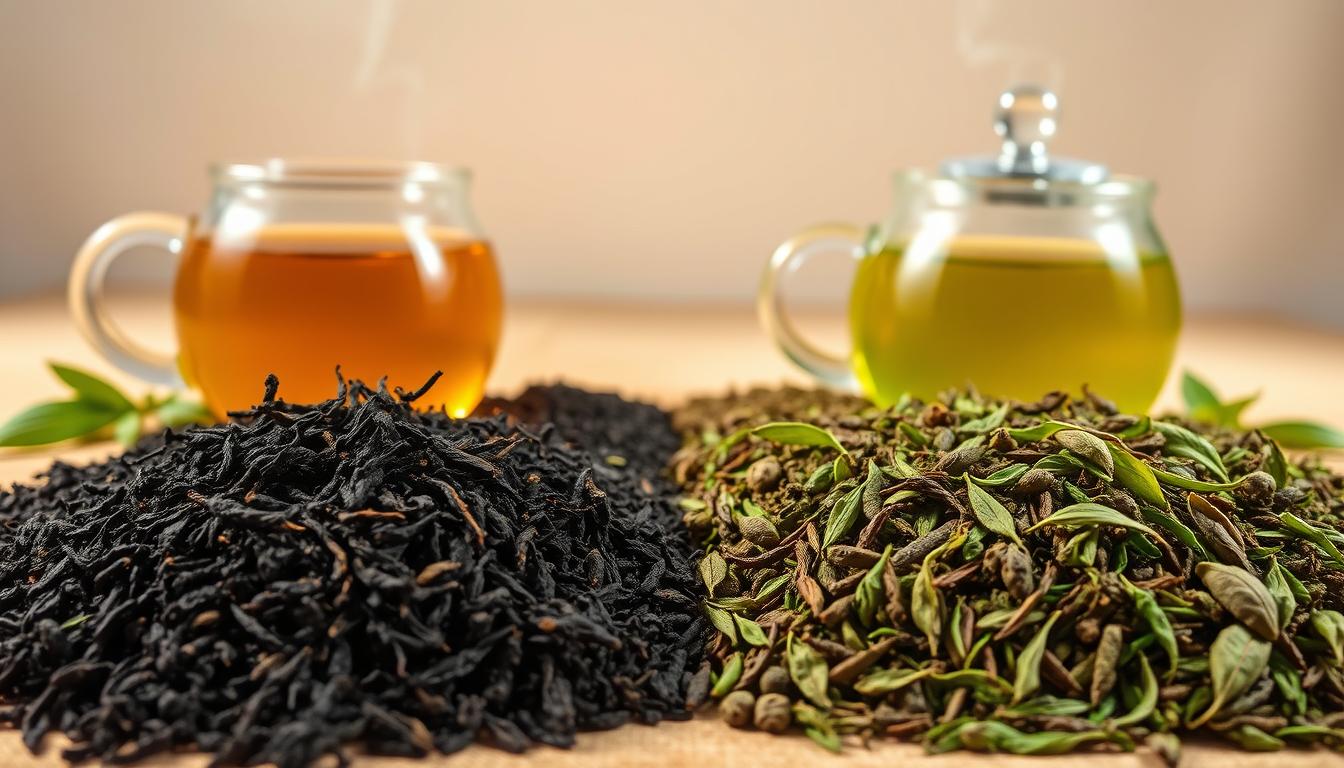Dried Rosemary: Ultimate Guide, Benefits & Uses (2025)
You’ve probably seen dried rosemary in cooking and wellness products. This fragrant Mediterranean herb is cherished for its aroma and its natural ability to support overall balance and vitality.
Exploring this herb shows how it can enhance both your cooking and your daily wellness. It’s perfect for anyone looking to add a touch of nature and harmony to their lifestyle.
Table of Contents
The Ancient Heritage of Rosemary
Rosemary has been treasured for thousands of years. It was seen as a symbol of remembrance, protection, and renewal. Today, this same timeless herb can be enjoyed in cooking, teas, or simple mindful rituals.
Historical Uses Across Civilizations
The Greeks and Romans admired rosemary for its association with focus and clarity. In many cultures, it represented remembrance and was often part of ceremonies to honor memory and reflection.
Rosemary in Traditional Wellness
In traditional wellness practices, rosemary was used to encourage balance and gentle support for the body. People enjoyed it as a herbal tea or in aromatic preparations. To enjoy it all year, many learned how to dry rosemary through simple air-drying or dehydrating methods, helping preserve its natural aroma and comforting qualities.
| Civilization | Use of Rosemary |
|---|---|
| Ancient Greeks | Used in rituals for focus and memory |
| Ancient Romans | Cooking and as a symbol of love and fidelity |
| Medieval Europeans | Used in herbal wellness blends for gentle comfort and balance |
What Makes Dried Rosemary a Kitchen Essential
This herb can take your cooking to the next level. Beyond its wonderful aroma, it helps support a balanced lifestyle and brings a touch of natural harmony to your meals.
The Unique Properties of Dried Rosemary
Once dried, rosemary keeps its rich flavor and aroma. Drying actually deepens these qualities, making it ideal for marinades, soups, or roasted dishes.
Nourishing Elements in Rosemary
Rosemary contains natural aromatic oils that may help support the body’s natural comfort and vitality. These elements work together to encourage a sense of calm and balance.
Aromatic Compounds and Gentle Protection
The aromatic oils in rosemary, such as camphor and borneol, may help support the body’s natural comfort. They also act as gentle plant-based protectors that help maintain daily wellness.
Vitamins and Minerals
Rosemary contains vitamins and minerals like vitamin A, vitamin C, and calcium. These elements contribute to general well-being and help the body function harmoniously.
How to Dry Rosemary at Home
Learning how to dry rosemary is simple and rewarding. Each method helps preserve its natural aroma so you can enjoy it throughout the year.
Air-Drying Method for Maximum Flavor
To know how do you dry rosemary naturally, tie small sprigs together and hang them upside down in a warm, dry, dark space. This gentle method helps the leaves retain their natural aroma.
- Choose a dry, airy space to prevent moisture.
- Hang sprigs upside down to preserve the leaves.
- Allow about one to two weeks for complete drying.
Quick Oven-Drying Technique
If you prefer a faster method, here’s how do dry fresh rosemary using your oven. Preheat it to the lowest setting (150–200°F). Place sprigs on a parchment-lined sheet and warm them for 1–2 hours until crisp.
Tips for oven-drying:
- Keep the oven door slightly open to release moisture.
- Check often to avoid over-drying.
Using a Dehydrator for Perfect Results
A dehydrator gives you more control. Set it between 95–105°F (35–40°C) and dry for 1–4 hours depending on moisture content.
Temperature and Timing Guidelines
For best results, maintain a steady temperature. Air-drying works well around 60–70°F (15–21°C), while ovens or dehydrators should follow the settings above.
Storage After Drying
Once rosemary is dry, store it in airtight containers in a cool, dark space to maintain its freshness and scent.
- Use glass jars with tight lids.
- Label with date and contents.
- Keep in a shaded cupboard for long-lasting flavor.
Culinary Applications of Dried Rosemary
This versatile herb brings warmth and depth to countless dishes. It’s a signature flavor in Mediterranean cooking.
Elevating Mediterranean Dishes
Rosemary adds richness to roasted meats, vegetables, and legumes. Try sprinkling it on roasted potatoes or mixing it with olive oil for an authentic Mediterranean touch.
Perfect Flavor Pairings Guide
Rosemary pairs well with many ingredients. Here are some favorite combinations:
- Rosemary and garlic for a savory balance
- Rosemary and lemon for a bright, uplifting flavor
- Rosemary and olive oil for a smooth, earthy note
Pro Cooking Tips and Measurements
Use rosemary moderately—a small pinch can make a big impact. Start with 1/4 teaspoon per serving and adjust as needed. Add it to marinades, stews, or soups for extra aroma.
Infusing Oils and Vinegars
Infuse olive oil or vinegar with rosemary to create flavorful bases for dressings and marinades.
If you’re interested in using rosemary in oil form, check out our beginner-friendly guide: How to Make Rosemary Oil: Quick Guide for Beginners.
Creating Custom Herb Blends
Blend rosemary with thyme, oregano, and parsley to create unique herbal mixes that suit your taste.
Wellness Qualities of Rosemary
This herb is more than a kitchen staple—it’s a simple way to nurture balance and well-being every day.
Natural Support for Balance and Vitality
Rosemary contains natural plant compounds that help the body feel balanced and energized. It gently supports a sense of wellness and inner harmony.
Encouraging Focus and Clarity
The refreshing aroma of rosemary is known to help awaken the senses and promote clarity. It’s often used to encourage focus and an uplifted mind.
Supporting Digestive Comfort
Traditionally, rosemary has been enjoyed after meals to promote comfortable digestion and overall harmony in the body.
Helping the Body Stay Naturally Resilient
With its plant-based compounds, rosemary helps the body stay naturally resilient to daily challenges, supporting vitality and gentle balance.
Rosemary Essential Oil and Aromatherapy
Rosemary essential oil offers similar qualities through its scent. Its fresh aroma can help clear the mind, reduce stress, and promote calm focus.
“The gentle scent of rosemary in aromatherapy supports clarity and calm awareness.”
Rosemary can also be infused into water for hair care. Learn a simple method in our guide: How to Make Rosemary Water for Hair | Simple DIY Recipe.
Dried Rosemary Products and Market Guide
Knowing the different forms of rosemary helps you make the best choice. You’ll find both whole and ground versions at various price points and qualities.
Choosing Between Whole and Ground Rosemary
Whole dried leaves hold their aroma longer—great for slow-cooked dishes. Ground rosemary blends easily into recipes needing a lighter touch. Your choice depends on preference and cooking style.
Rosemary Price Comparison and Value
Prices vary based on quality, packaging, and origin. Compare cost per ounce or gram to find the best value for your kitchen.
| Product | Price per Ounce | Quality Indicators |
|---|---|---|
| Whole Rosemary | $1.50 | Organic, Non-GMO |
| Ground Rosemary | $2.00 | Conventional, High Aroma |
Organic vs. Conventional Options
Organic rosemary is grown naturally without synthetic additives, offering a more eco-friendly choice. Conventional options can still deliver high quality while being more budget-friendly.
Fresh vs. Dried Rosemary: Making the Right Choice
Both fresh and dried rosemary have their unique charm. Each brings its own benefits to your cooking routine.
Flavor Differences
Fresh rosemary offers a bright, herbal taste, while the dried version provides a deeper, concentrated aroma. Choose based on the dish and your preferred flavor intensity.
Substitution Ratios
When substituting, use about one-third the amount of dried rosemary in place of fresh. This keeps your recipe balanced and flavorful.
Storage and Longevity
Dried rosemary can stay fresh for up to a year if stored in a cool, dry place. Fresh rosemary lasts a few days when refrigerated.
Maximizing Shelf Life
Store in airtight containers, away from light and humidity, to preserve its natural aroma and strength.
Conclusion: Adding Rosemary to Your Wellness Routine
Incorporating rosemary into your wellness routine is a simple way to enhance flavor and balance. It helps you connect with nature through cooking, aroma, and mindful use.
Adding rosemary to meals not only elevates taste but also nurtures your overall sense of well-being. Try it in Mediterranean dishes, herbal infusions, or homemade blends for a gentle daily boost.
Start using rosemary today to enjoy its rich aroma and natural vitality. Make it a cherished part of your kitchen and wellness lifestyle.
FAQ
How do you dry fresh rosemary?
To know how do you dry rosemary, tie small sprigs together and hang them upside down in a warm, dry, dark space. Air-drying is the simplest way to preserve its natural aroma and comforting qualities.
How to dry rosemary using an oven?
Set your oven to the lowest heat (around 150–200°F). Spread sprigs on parchment paper and leave for about an hour. This is one of the easiest ways if you’re learning how to dry rosemary quickly.
What are the natural benefits of rosemary?
Rosemary contains natural plant compounds that help the body stay balanced, promote focus, and support overall vitality. It’s a simple, aromatic way to nurture wellness through everyday use.


